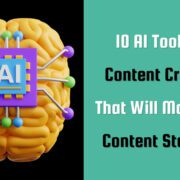Is Blogging Dead in 2025? Let’s Set the Record Straight

“Blogging is dead.” You’ve probably heard that before—maybe even shouted it into the void after your fifth post got exactly three views (two of which were your mom). But here’s the thing: blogging isn’t dead. It grew up, got smarter, and stopped playing by outdated rules.
Yes, the landscape has changed. A lot. But instead of mourning the blogosphere like it’s a MySpace profile, it’s time to recognize what blogging has become and why it’s still thriving in 2025 for people who know how to play it right.
Why Do People Keep Saying Blogging Is Dead?
Usually, it’s because their traffic tanked—maybe after months of hard work with little reward—or because their niche dried up, or they published 10 low-effort listicles with no real substance and wondered why no one came back. Old-school blogging (the kind where you’d toss up a 300-word post stuffed with keywords and wait for the Google gods to bless you) is indeed buried in the backyard. But that’s not blogging’s fault. That’s just evolution.
Others blame TikTok, YouTube Shorts, Substack, or newsletters. There’s always a shiny new platform to chase. But writing off blogging entirely? That’s like saying radio died because Spotify exists. Different tools, different purposes.
The truth is, blogging didn’t die. Lazy blogging died. The kind of blog that’s thoughtful, specific, visually engaging, and optimized for both humans and algorithms? That kind of blog is alive and thriving.
The Data Doesn’t Lie
There are over 600 million blogs online, and platforms like WordPress see around 70 million new posts each month. That’s not the death rattle of a dying medium. It doesn’t mean every blog is doing well, but blogging is still very much part of how people consume content. According to WPBeginner, blogging remains one of the most effective forms of content marketing.
Marketing budgets haven’t abandoned blogging either. Global content marketing spending is projected to grow significantly through 2027. Businesses are still hiring blog writers, investing in SEO, and using content to rank, engage, and convert. In other words, the people with the money still think blogging’s worth it—and you know how rare that is.
Plus, blogs offer something most platforms can’t: ownership. When you write on Medium, Substack, or Instagram, you’re at the mercy of someone else’s algorithm, policies, and platform changes. But when you publish on your own site, you’re in control. For example, if Google tweaks its search engine tomorrow, your blog might take a hit, but it won’t vanish overnight like a deleted TikTok or a shadowbanned Instagram account. You set the rules, own the content, and decide how it’s used and monetized. That level of control doesn’t exist on social media, where your visibility depends on ever-changing algorithms and CEO whims.
What’s Actually Changed
A few years ago, you could half-ass it. Now? You need a full-ass approach. Blogging today is about value, not volume. You’re no longer just competing with other bloggers. You’re competing with Reddit threads, TikTok explainers, Instagram carousels, YouTube deep dives, and AI-generated everything.
Google’s also changed. Between the Search Generative Experience, AI summaries, and an increased focus on “real experience” (thanks to Helpful Content updates), your generic SEO-optimized fluff just isn’t going to cut it. If you’re not adding something unique—like personal experience, research, data, or opinion—you’re invisible.
So what works now?
- Niche focus. Casting a wide net gets you nothing. Hyper-targeted blogs win because they serve specific needs and build loyal readers.
- Real voice. People are exhausted by sanitized, ChatGPT-cloned content. Show some personality. Be human.
- Email + community. Blogging isn’t a one-way broadcast anymore. Newsletters, comments, forums—it’s about building real relationships and owning your distribution.
- Multi-platform strategy. Blog posts don’t live in isolation. Repurpose them into YouTube scripts, LinkedIn posts, podcast outlines, and Instagram reels. Repurposing isn’t optional—it’s survival.
- Better design and UX. A clunky site with a 20-second load time won’t keep readers. Blogging in 2025 also means thinking like a designer.
Blogging in 2025: Who Is It For?
Blogging still works. But not for everyone.
Here’s who it’s especially effective for:
- Niche creators focused on a specific topic or audience
- Small business owners looking to build organic traffic and trust
- Personal brands who want to control their message and content
- Affiliate marketers who know how to play the long game
- Writers and thought leaders publishing evergreen insights in their own voice
Blogging is also ideal for those who want more control over their content and brand. Social media platforms can change their algorithms overnight. But with a blog, your content lives on your domain, on your terms. You get the SEO benefits, the analytics, the email signups, and the freedom.
Take a spin through Reddit’s r/Blogging and you’ll find creators still seeing solid income from affiliate strategies, SEO-optimized evergreen content, and email list-driven product launches. The ones who treat their blogs like businesses? They’re doing just fine.
And let’s not forget niche power. The weirder or more specific your blog, the better chance you have of standing out. Blogs about niche tech, old video games, 1980s horror, productivity for ADHD, or vegan dog food are thriving in their own corners of the web.
Blogging Isn’t Dead, But Your Strategy Might Be
If you’re still writing for 2013, you’re not going to get 2025 results. Blogging isn’t dead—it’s just not what it used to be. And honestly, thank goodness for that. The internet already has enough 500-word posts on “10 Best Productivity Hacks” that are nothing but ChatGPT rewrites and recycled Pinterest graphics.
2025 Blogging Checklist: What to Do Instead
- Know who you’re talking to (and what they actually need)
- Write with a real human voice (no one likes content soup)
- Focus on long-term value, not short-term clicks
- Use your blog as a hub, not your entire brand
- Build an email list and actually use it
- Collaborate with others in your niche to grow faster
- Refresh old content instead of endlessly cranking out new stuff
Blogging now requires intention. You don’t just write and hope. You strategize, optimize, and build systems that work over time.
Final Word
Blogging in 2025 isn’t dead. It’s just wide awake and evolving fast. If you’re willing to show up, bring some personality, and play smart (not just hard), it still works—and it works better for people who evolve.
The platforms might change. The rules might shift. But writing something useful, thoughtful, and personal on your own corner of the internet? That’s not going anywhere.
Just don’t forget to thank your mom for those first two clicks. She believed in you before Google did.









Leave a Reply
Want to join the discussion?Feel free to contribute!